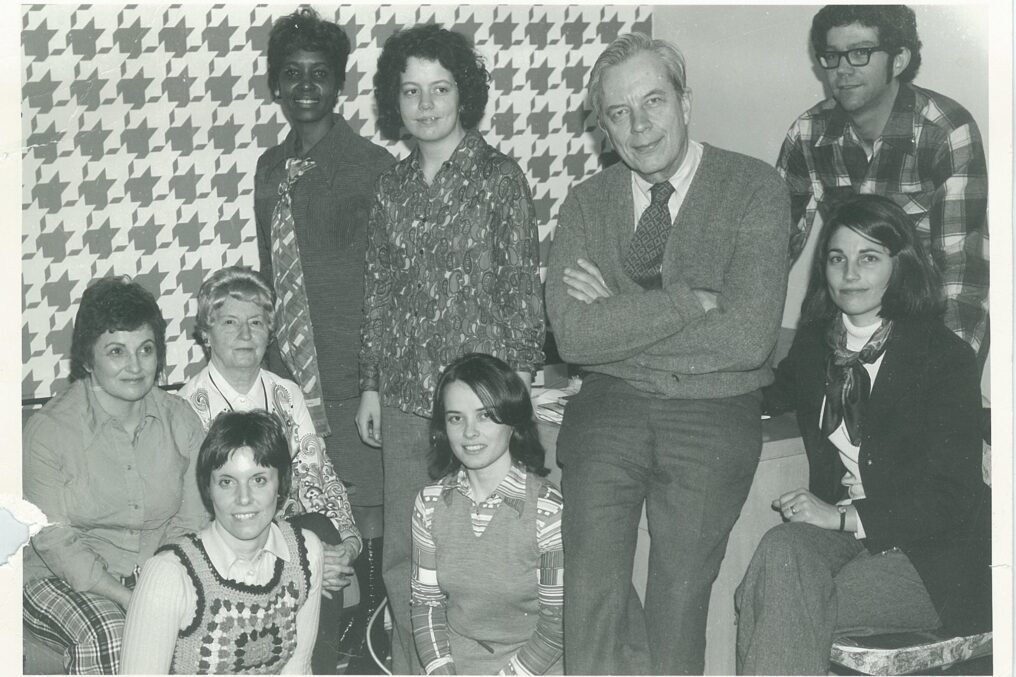50th Anniversary Stories
What Is the Jubilee Year?
During Jubilee’s yearlong 50th anniversary celebration, you will see references to the Jubilee Year. As we celebrate five decades of impact, Jubilee Housing is looking to the future by reflecting on the core beliefs that guided our founders.
Jubilee Housing was created by several volunteers from the Church of the Saviour, an ecumenical faith community founded in 1946 in Washington, DC by former US Navy Chaplain Gordon Cosby. The Church of the Saviour offered an environment that made it common for ordinary people to hear a call to address places of need in the world.
Our founders’ call was to bring housing stability to residents in a pocket of the Adams Morgan neighborhood. They began by purchasing two dilapidated buildings, collaborating with residents on improvements to the properties, and recruited business leaders to help them take first steps towards creating Justice Housing®.
Our founders chose the name Jubilee Housing to anchor this work in the transformational vision of the Jubilee Year, a 50-year cycle of renewal first imagined in ancient scripture to unwind inequity: lost property was returned to prior owners, debts were forgiven, captives were released, and outsiders brought back inside.
The Three Jubilee Year Principles
Excerpt of Remarks by Jubilee Housing President & CEO Jim Knight
1. Filling Gaps. Every person carries inside themselves unique gifts and unlimited potential. When each of us has access to the right environment, we have what we need to thrive. The problem is that too many people live in settings where they face gaps in basic needs. Gaps limit the development of gifts. People aren’t able to access their full potential. Think of schools that don’t meet learning needs. Or an income that doesn’t provide for adequate nutrition. These kinds of gaps interrupt progress.
The Jubilee vision calls us to build responses that help overcome these gaps. We do this through housing and access to other resources.
2. Breaking Down Boundaries. People cut off from opportunity tend to struggle at the edges of society, never quite fitting in. The social disgrace can be as debilitating as gaps in resources. Maybe you can recall a time when you didn’t quite fit in, and how that impacted your sense of self?
Father Greg Boyle of Homeboy Industries says, “We imagine no one standing outside of the circle, moving ourselves closer to the margins so that the margins themselves will be erased. We stand there with those whose dignity has been denied.”
This “standing with” wipes out social stigma and says instead: you are valuable — we cannot be whole without you!
Jubilee works to bring the outsider back inside.
3. Resetting the System. Think of this on the societal level of economic systems. Unjust practices are preventing people from thriving. In housing, a legacy of redlining systematically limited the kinds of homes and neighborhoods that were available. Today, we face NIMBYism that says its ok as long as its “not in my back yard.”
Jubilee’s work is to interrupt unfair practices and replace them with just pathways forward that have impact beyond our neighborhood.
Our founders chose the Jubilee Year as their inspiration in an earlier era when, like now, the economy was not working for everyone. They knew this vision had the power to disrupt the status quo and bring generative change for the future.
At Jubilee Housing, we are grateful to reflect on our founders’ vision and principles as we enter our next half-century of mission. We believe every person has in them what is needed to live a fulfilling life and that access to opportunities helps surface these inherent gifts. We believe in the self-determination of each person and working in partnership with one another to discover our gifts. We believe obstacles are overcome and dreams are realized as people experience life together in community. We believe this approach to community breaks down barriers, promotes inclusion and equity, and builds a city where everyone can thrive.

